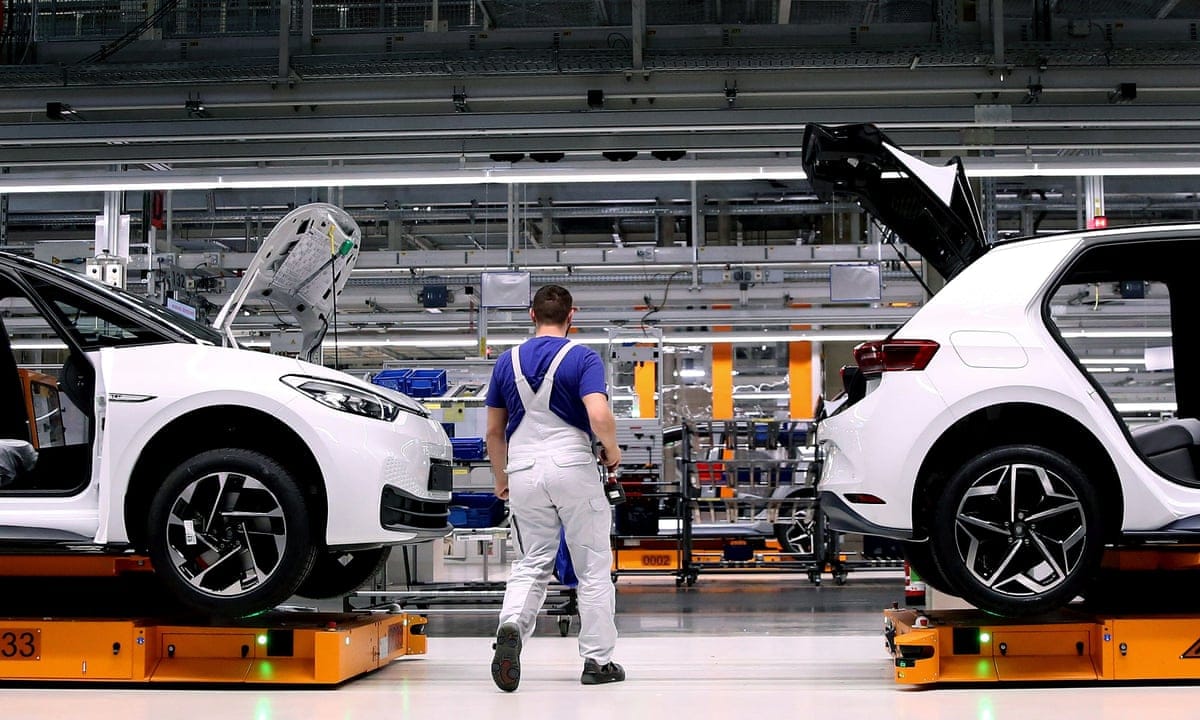The EU’s chief trade official, Valdis Dombrovskis, has dismissed concerns about potential trade war retaliation from Beijing against European businesses following the European Commission’s imposition of duties on Chinese electric vehicles.
Dombrovskis, a vice-president of the European Commission, stated on Bloomberg Television that discussions with China were ongoing, emphasizing: “We see no basis for retaliation as our actions comply with WTO [World Trade Organization] regulations.”
Starting Friday, provisional tariffs on Chinese EV imports into the EU, ranging from 17.4% to 37.6%, will be enforced after both parties failed to agree on what the EU describes as Beijing's “unfair” subsidies.
These tariffs, which are significantly lower than the 100% tariffs imposed by the US, will be added to the EU’s existing 10% duty on Chinese electric vehicles.
Volkswagen, Europe’s largest car manufacturer, reiterated its criticism of the commission’s proposed tariffs on Chinese-made EVs on Thursday, arguing that these measures would not bolster Europe’s car industry in the long run.
Volkswagen, which is facing a declining market share in China, has previously cautioned about possible retaliation from Beijing. The company stated on Thursday, “The timing of the EU Commission’s decision is harmful to the currently weak demand for [battery electric vehicles] in Germany and Europe.”
Stellantis, which owns brands like Citroën, Fiat, and Vauxhall, has stated it will not adopt a defensive approach in the competition for electric car sales, opting instead to “fight to remain competitive”.
The tariffs result from an ongoing EU investigation initiated last October, which concluded that Chinese manufacturers received subsidies at every stage of production, from lithium mining for batteries to shipping vehicles to EU ports like Rotterdam and Antwerp.
The commission said in a statement accompanying a legal decision published on Thursday, “Based on the investigation, the commission has determined that the BEV [battery electric vehicle] value chain in China benefits from unfair subsidization, posing a threat of economic harm to EU BEV manufacturers.”
European Commission President Ursula von der Leyen informed Xi Jinping during the Chinese president’s recent visit to Europe that state support for Chinese industries, leading to artificially low-cost products, was causing “imbalances” and threatening European jobs, which was “a matter of great concern.”
China, seeking a “mutually acceptable solution” to the dispute, is investigating French cognac and pork imports over subsidies, suggesting potential tit-for-tat measures.
The Chinese commerce ministry stated last month, “It is clear who is escalating trade tensions and instigating a ‘trade war’.”
China has secured a 25% share of the EU market for electric-battery powered cars, up from 3% in 2020. EU officials are concerned that without intervention, the European industry, which employs 2.5 million people and 10.3 million in the broader supply chain, could be severely impacted, similar to how EU solar-panel companies lost out to subsidized Chinese competitors.
From Friday, importers of Chinese vehicles into the EU must provide bank guarantees to customs officers to cover the duties. Funds will be collected only if the commission determines in the autumn that the car industry would have suffered without these duties.
A final decision on definitive duties, which would last for five years, will be made in the autumn, subject to a vote by the EU’s 27 member states.
Under the provisional measures, BYD, a competitor with Tesla for the title of the world’s largest electric vehicle producer, faces a tariff of 17.4%; Geely will be subject to a 19.9% tariff, and SAIC 37.6%.
These rates, calculated based on total subsidies and company turnover, have been slightly adjusted downward in most cases since the initial disclosure of tariffs last month, following technical discussions with the companies.
The tariffs will be enforced despite strong opposition from Germany, Europe’s largest exporter to China. The German government has called for a “friendly solution” but also stated that “serious progress is needed on the Chinese side.”
German officials do not anticipate reversing the measures, which can only be overturned by a weighted majority of 15 EU member states, representing 65% of the union’s population.




